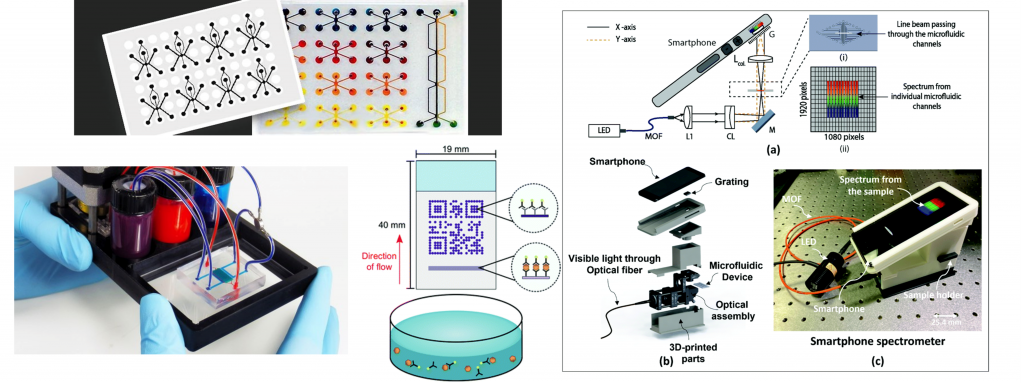
Low Resource and Microfluid Diagnostis play a pivotal role in addressing healthcare challenges where access to advanced medical technologies is limited. Medical technology access is a key contributor to many of the health disparities that exist in low-resource settings and developing countries. Low-cost, innovative solutions are needed to overcome this challenge and provide accurate disease diagnosis as the first step toward effective treatment. Biomedical Engineers at Vanderbilt are working to develop low-cost, reliable, rapid point-of-care platforms to implement in clinical, remote, and research settings. Microfluidics has helped to revolutionize these efforts by miniaturizing platforms to enable portable and point-of-care use while still performing multiplexing and complex sample analysis using minimal resources. Work at Vanderbilt ranges from developing microfluidics platforms for performing urinalysis and detecting biomarkers of infection such as malaria, tuberculosis, and sepsis to fabricating multifaceted structures to recreate biosystems for bioreactors and organs-on-a-chip applications. Vanderbilt is also conducting innovative work in designing low-cost mobile platform readers, non-invasive spectroscopic tools, and imaging systems for rapid sample analysis and real-time feedback. Vanderbilt excels in this area in part due to the state-of-the-art facilities in nanofabrication at the Vanderbilt Institute of Nanoscale Science and Engineering (VINSE). Vanderbilt is also home to the Vanderbilt Institute for Integrative Biosystems Research and Education (VIIBRE). VIIBRE's mission is to invent experimental and computational tools and develop the skills required to conduct research in systems biology. Using BioMEMS and advanced instrumentation, novel platforms are being developed that can make physiological measurements that were previously impossible.
BME Core Faculty in Low Resource and Microfluidic Diagnostics
BME Affiliated Faculty in Low Resource and Microfluidic Diagnostics
- Justin Baba
- Dmitry Markov